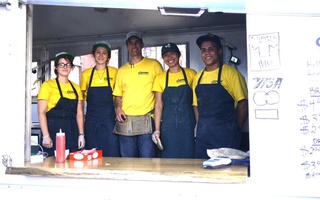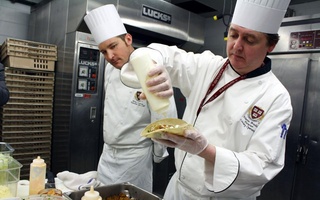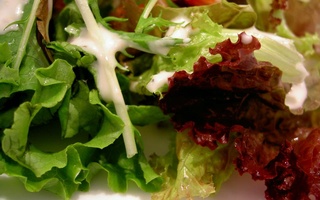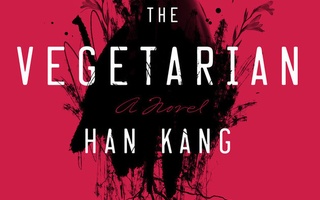My biggest claim to fame is the vegetarian blog I created and ran in middle and high school. At its peak it had about 15,000 followers, and I was spending many of my wild, teenage late nights online, fielding a mailbox full of questions from meat eaters and non-meat eaters alike.
This was my first acquaintance with activism gone wrong. I didn’t have the language for it at the time, but it only took so many death threats from angry vegans before I started to draw conclusions about what it means to be an advocate, how to cope with politics and the self, how to be the best activist.
Mostly, I got a lot of concerning health-related questions about which the askers really should have sought help from a medical professional. Besides those, the questions (there are 421 unanswered in the mailbox right now) broke down in a predictable way: easy thing the asker could have googled, argument over semantics, hostile vegan, angry meat-eater.
It was perplexing to me, even then, why a meat-eater would Internet-scream at a vegetarian for making them feel sad and guilty, how a vegan would Internet-scream at a vegetarian for being a hypocrite. It felt silly and pointless to argue with random strangers, probably also children, about what the word vegetarian really meant, discussing identity politics regarding a dietary choice. I set out to complain anonymously about how McDonald’s literally sold zero solid food items that were vegetarian, and I ended up some kind of end-all be-all voice on vegetarianism. I was 14 and sitting in my bed on tumblr. I just wanted everyone to get along.
Of course, I do remember the rush of it. Typing furiously on my laptop, opening tab after tab, knowing I was totally going to crush a gross omnivore or harsh vegan with my politics, my wit. Shaking, grinning, clicking send. At first, it was intoxicating.
After a while it was exhausting. I couldn’t bring myself to check my inbox. I didn’t think about being a vegetarian nearly as much as I talked about it online. I knew what I believed, I knew what I was about, but still there was this relentless heat from all sides. I was jaded, fatigued. My laptop was an anxious place.
I’m still a vegetarian, usually. When I look back now, there are, of course, conclusions I can draw about who I was then. I was shrinking myself to fit into a “movement,” or whatever, that was pretty alienating for me. I saw enough people comparing factory farming to slavery to want to quit the Internet forever. I witnessed so many fired up white people profoundly misunderstanding race and class it took me back to my Jesus camp days, (and perhaps the day for that column will come.) Ideologically, I was at a different place then than I am now. I still love animals; I still care about the environment. I don’t eat meat. It’s not really my beat anymore, the militant vegetarian thing, but I did learn some things, at least, from when it was. Like that no one person can speak for any individual group. Back then I was a vegetarian who didn’t think vegetarians should eat gelatin, but now I’m a vegetarian who really doesn’t give a shit about that. Back then I had not yet heard the word intersectional, but now I get that you can’t argue for vegetarianism or veganism without understanding and talking about poverty, class, and culture.
If you expect the one vegetarian who runs the blog to answer for all vegetarians, you’re being silly (and when it’s with things that matter more than vegetarianism, you’re being prejudiced.) If you expect your kind of vegetarianism to be perfectly represented by one individual’s, you’re bound to end up feeling a little attacked, a little left out. But if your kind of vegetarianism genuinely, validly hurts people and their identities, you’re not doing it right either. If you are open to figuring out, though, how another individual’s identity and history must inform their personal identity as a vegetarian, you’re more likely to hear what they’re really saying, to maybe even grow yourself.
The lessons just keep coming. Whose voices were taking up the most space on all the vegetarian forums? What, at the end of the day, were we actually doing for this cause we all cared about? What are the benefits of turning inward as a community? When is it most effective to turn outward?
What does it mean for a meat eater to enter a space for non-meat eaters and yell about meat? I always just wanted to pop through the asker’s smudged laptop screen, shout, “Listen to yourself. What is it about this that is making you so upset? What’s at stake for you in my choices? Is this maybe guilt that you’re feeling? Why do you want so badly for me to unsubscribe from my ideas and subscribe to yours? So you don’t have to think anymore? Why does the thinking about this hurt you?”
Maybe it’s a stretch, maybe my vegetarian blog isn’t a microcosm for all of social justice, that’s fair. But I can at least speak to the aftertaste, that bitter exhaustion I felt at sixteen and feel sometimes now. When the self is so political, it takes real emotional acrobatics to get through a particularly heated discussion in class. To listen to a person who is literally the void of all the identities that make this body a survival say offensive shit on the internet, or in section, or straight up to my face for the sake of “engaging,” “discussing,” “playing the devil’s advocate.” To listen to a person who maybe checks some of the same boxes as me, but definitely doesn’t check all of them complain about feeling left out by my kind of activism. By my angry. By my feelings. To be expected to comfort that. Being a student, and an activist, and a functioning human being takes breaking off parts of yourself and putting a piece in the middle of the long wooden table in the dining hall, a piece on twitter, a piece in The Crimson, in Renegade, wherever. In no world is this a hobby, in no world is this easy work.
I sometimes think about the people for whom no cause is more personal than vegetarianism was for me as a kid. That’s fine, really, but it can be important to remember. There is something to be said for those of us who are working toward our own inevitable fatigue. There is something to be said of meat, of action, of kindness. And honestly, really, bless 14-year-old me for doing that shit when I didn’t even have to. Bless all of us, now, who do.
Madison E. Johnson ’18 lives in Pforzheimer House. Her column appears on alternate Wednesdays.
Read more in Opinion
Not Art
















